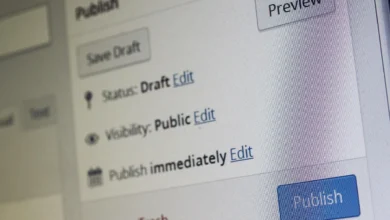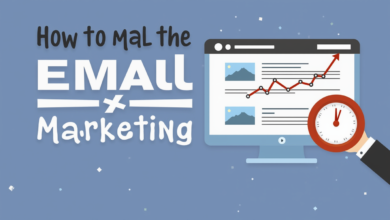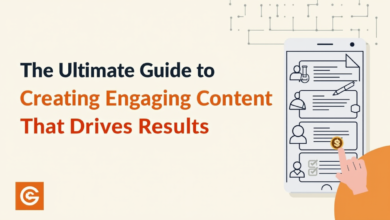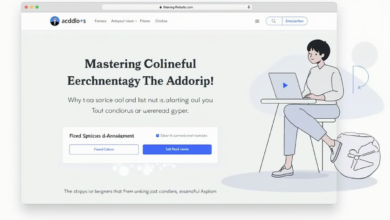unviersyt partners content marketing specialist linkedin

As a University Partners Content Marketing Specialist, you’re key in creating content that speaks to higher education fans. Your skills in digital marketing and content curation make you a treasure for universities. They want to form strong partnerships and connect with students, alumni, and other important groups.
In this guide, we’ll dive into what you do, the skills you need, and how to build a strong LinkedIn profile. This will help you stand out in university partnerships and content marketing. Whether you’re aiming for this role or already have it, this info will boost your career in higher education marketing.
Table of Contents
Understanding the Role of a University Partners Content Marketing Specialist
Universities are now using content marketing specialists to talk to their global audience. This includes potential students, faculty, alumni, and research partners. These experts help boost the university’s brand, attract students, and build strong connections through social media marketing, brand storytelling, and audience engagement.
Core Responsibilities and Required Skills
Content marketing specialists at universities create and share engaging content. They work on the university’s website and social media. They need skills in content making, SEO, and data analysis to run successful campaigns.
- Developing content strategies and editorial calendars to align with the university’s marketing objectives
- Producing engaging written, visual, and multimedia content that resonates with prospective students, faculty, and other stakeholders
- Optimizing content for search engine visibility and website performance
- Monitoring and analyzing campaign metrics to inform data-driven decision-making
- Collaborating with cross-functional teams, such as admissions and alumni relations, to ensure consistent messaging and brand alignment
Educational Requirements and Professional Certifications
Universities usually look for specialists with a bachelor’s degree in marketing, communications, or a related field. Having certifications like HubSpot Content Marketing or Google Analytics can also help. It shows they keep learning and growing.
Industry Experience Prerequisites
Experience in higher education or B2B marketing is often a plus. It helps them understand the unique challenges and opportunities in the university sector. They need to know how to work with complex systems, manage different interests, and keep up with changes in education.
“Content marketing is a powerful tool for universities to build brand awareness, drive student enrollment, and foster meaningful connections with their global audience.”
Building Your LinkedIn Profile for Content Marketing Excellence
Your LinkedIn profile is key to showing off your skills in content marketing. It’s where you can share your expertise in higher education marketing. Make sure your profile has a professional photo, a catchy headline, and detailed work history.
The summary section lets you share up to 2,600 characters. It’s a chance to talk about your background, achievements, and what you bring to the table. Avoid using generic buzzwords like “proven track record” or “creative”. Instead, tell a story that connects with your audience. Use lists, personal stories, and testimonials to make your summary pop.
Use LinkedIn’s publishing feature to share your insights on higher education marketing. Post about the latest trends, best practices, and new ideas. Join groups and talk in discussions to grow your network and show your influence.
“A clearly defined mission helps create a consistent brand identity for a business school among a vast pool of LinkedIn users.”
LinkedIn has over a billion users worldwide. It’s a great place to build your brand and network. By making your profile shine and sharing valuable content, you’ll catch the eye of universities, students, and peers. This will help you stand out as a leader in content marketing for higher education.
Developing Strategic Content Plans for Higher Education Partners
In the world of higher education marketing, content strategy is key. It helps build strong connections with university partners. As a content marketing specialist, you need to make detailed content calendars. These calendars should match the academic year and the goals of your university.
This way, your content will reach the right people at the right time. It will boost engagement and help your university achieve its goals.
Content Calendar Creation
Making a good content calendar is vital. It keeps your content consistent and in sync with the academic year. By planning topics, formats, and when to publish, you provide valuable info. This info meets the changing needs of your partners and potential students.
Stakeholder Communication Methods
Good stakeholder management is key to your content strategy’s success. Talk clearly with important people at your university, like admissions teams and faculty. Regular meetings and feedback help you understand their needs. This way, you can make content that meets their goals and builds a partnership.
Performance Metrics Setup
To see how well your content works, set up specific KPIs for higher education partnerships. Watch how people interact with your content online and through emails. Also, track how well your content leads to new students.
By using a smart, data-based approach to content, your university can lead the way. You’ll build strong connections with partners and help meet important goals like getting more students.
| Metric | Objective | Benchmark |
|---|---|---|
| Website Traffic | Increase organic visibility and engagement | 20% year-over-year growth |
| Social Media Engagement | Foster community and drive brand awareness | 5% increase in followers and 15% increase in engagement |
| Email Open Rates | Improve personalized communication and nurturing | 25% average open rate |
| Lead Generation | Convert website visitors into prospective students | 10% increase in lead-to-application conversion |
unviersyt partners content marketing specialist linkedin
Looking for a career as a University Partners Content Marketing Specialist? LinkedIn is a great place to start. It’s full of tools and features for professional networking, career advancement, and finding jobs.
First, make your LinkedIn profile shine. Show off your skills in content marketing, higher education, and digital strategy. Keep your profile current, highlight your skills, and use keywords that recruiters might search for.
Then, join LinkedIn groups like “Higher Education Marketing Professionals” or “Content Marketing Institute.” These groups offer insights, networking chances, and job listings in your field.
- Follow top universities and educational tech companies on LinkedIn to keep up with trends and job openings.
- Engage with their content by commenting thoughtfully. This helps you stand out as an expert.
- Use LinkedIn’s job search to find and apply for University Partners Content Marketing Specialist jobs that fit your skills and goals.
LinkedIn can help you grow your network, stay current with industry news, and become a top candidate for the University Partners Content Marketing Specialist role.
“Networking is the single most powerful marketing tactic to grow any business.” – Ivan Misner, founder of BNI
| LinkedIn Feature | Benefit for University Partners Content Marketing Specialists |
|---|---|
| Profile Optimization | Showcase your expertise and make it easy for recruiters to find you |
| Industry Groups | Connect with like-minded professionals, stay informed, and discover job opportunities |
| Job Search | Actively search and apply for University Partners Content Marketing Specialist roles |
Leveraging Digital Marketing Strategies in Higher Education
In the fast-changing world of higher education, schools must meet the needs of future students. Using multi-channel marketing helps you reach your audience and boost digital engagement on different platforms. It’s important to use social media, improve email marketing, and spread content through various channels.
Social Media Campaign Integration
Social media is key in attracting students. With well-planned social media campaigns, you can connect with students on their favorite platforms. Whether it’s Instagram, TikTok, LinkedIn, or Facebook, a good social media plan showcases your school’s strengths, builds your brand, and encourages student interaction.
Email Marketing Optimization
Email marketing is still a strong tool in education marketing. By making your emails better, you can personalize your messages and connect with students more deeply. Use data to send messages that really speak to your audience, segment your emails, and share content that matters to them.
Content Distribution Channels
Don’t just stick to social media and email. Use a wide range of channels to reach more people. Webinars, podcasts, and virtual events offer valuable content, making your school a leader in education. These platforms let you talk directly to your audience, build stronger connections, and help attract more students.
| Marketing Technique | Potential Impact | Key Benefits |
|---|---|---|
| Social Media Campaigns | Increased brand awareness and engagement with prospective students | Targeted messaging to reach your audience Fostering authentic connections with students Showcasing your institution’s unique offerings |
| Email Marketing Optimization | Personalized communication and stronger relationships with potential partners | Data-driven insights for tailored messaging Segmented audience targeting Delivering relevant and timely content |
| Diverse Content Channels | Thought leadership positioning and broader audience reach | Webinars and virtual events for interactive engagement Podcasts for educational and informative content Establishing your institution as an industry authority |
“Embracing digital marketing strategies is crucial for universities and colleges to stay competitive in the evolving higher education landscape.”
Creating Engaging Content for University Partnerships
Creating stories that grab attention is key when showing off university partnerships. Use storytelling techniques to share the good stuff about these collaborations. This will draw in your audience with interesting stories and real-life examples.
Pair your stories with visual content that catches the eye. Bright infographics and helpful videos can show off program details. They also highlight what makes each partnership special.
- Make eye-catching infographics to show off important stats and benefits.
- Make short, useful videos that give a tour of campus or share student stories.
- Use interactive media, like quizzes or virtual tours, to grab and keep your audience’s interest.
The aim is to make content that adds value for higher education institutions. By telling engaging stories, using visuals, and adding interactive bits, you can show the unique benefits of your partnerships. This will inspire future students and partners to join in.
“Effective content marketing in higher education is all about creating experiences that capture the imagination and inspire action.”

Measuring Content Marketing Success Through Analytics
As a university partners content marketing specialist, tracking your efforts is key. It ensures your content marketing meets your institution’s goals. Analytics and data help you understand your campaign’s success. This way, you can improve your content strategy.
Key Performance Indicators (KPIs)
Set KPIs that match your marketing goals. This includes application rates, partnership inquiries, and program enrollment. These metrics show how your content marketing helps your institution succeed.
ROI Assessment Methods
Use strong ROI methods to see your partnerships’ long-term value. Track content costs against revenue to show your marketing’s worth.
For example, a campaign that returns 300% on investment is very valuable to your strategy.
Data-Driven Decision Making
Use data visualization tools to make complex data simple. This helps you make better decisions and improve your partnerships.
Focus on KPIs, ROI, and data-driven decisions. This way, you can measure your content marketing’s success. You’ll show the real benefits to your institution.
Building Thought Leadership in Higher Education Marketing
As a university partners content marketing specialist, becoming a thought leader is key. It boosts your credibility and impact. By creating top-notch, valuable content, you show you’re an expert. This makes you a go-to resource for your audience.
Writing for respected higher education publications is a great way to build your reputation. It gets your work seen by more people and shows your knowledge. Hosting or leading webinars on new marketing strategies for universities also highlights your expertise.
Looking for speaking gigs at education tech conferences is another smart move. These events let you share your insights, meet peers, and stand out as a leading voice.
Working with industry influencers to create content is also effective. It uses their credibility to boost yours. This way, you tackle current challenges in university partnerships together.
The secret to thought leadership is to always provide valuable, engaging content. It should solve your audience’s problems. By being seen as an expert, you increase your visibility and credibility. This helps your university partnerships succeed.
By writing for respected publications, giving impactful conference presentations, and hosting educational webinars, you can become a thought leader. This is crucial in the higher education marketing world.
Implementing Effective Lead Generation Strategies
Effective lead generation is key to a successful content marketing strategy for university partnerships. By creating targeted lead magnets, like whitepapers on new education trends or ROI calculators for special programs, you can gather valuable data. This data helps you understand your potential partners better.
Using marketing automation tools, you can then guide these leads through the decision-making process. You provide them with content and insights that build trust and deepen their engagement with your university.
Optimizing your landing pages is also vital for converting leads into partners. Show the unique benefits of your university partnerships, such as access to leading research or exclusive networking. This can encourage potential partners to take action, like asking for more information or setting up a consultation.
Regularly check how your lead generation campaigns are doing and tweak your strategies as needed. This ensures you keep improving and getting the best results.
Using a multi-channel lead generation approach can help you reach more people. This includes email marketing, social media, and content marketing. It lets you connect with your audience through their favorite channels.
By using lead scoring, you can find your most promising prospects. Then, you can focus on nurturing those relationships and helping them decide to partner with your university.
FAQ
What are the core responsibilities of a University Partners Content Marketing Specialist?
A University Partners Content Marketing Specialist creates content for marketing efforts. They engage students and partners, showing the value of university partnerships.
What skills are required for a University Partners Content Marketing Specialist?
Key skills include content creation, SEO, and social media. They need to communicate with stakeholders and analyze data. Proficiency in content management systems and digital advertising is also important.
What educational background is typically required for a University Partners Content Marketing Specialist?
Most have a bachelor’s degree in marketing or communications. Professional certifications like HubSpot Content Marketing can also help.
How can a University Partners Content Marketing Specialist build a strong LinkedIn profile?
To build a strong LinkedIn profile, they should use a professional headshot and compelling headline. They should also share their content marketing portfolio and engage with groups.
How can a University Partners Content Marketing Specialist develop strategic content plans for higher education partners?
They should create content calendars aligned with academic cycles. They need to communicate with stakeholders and set KPIs to measure performance.
What digital marketing strategies can a University Partners Content Marketing Specialist leverage?
They can use social media campaigns and optimize email marketing. They should also use webinars, podcasts, and virtual events to reach more people.
How can a University Partners Content Marketing Specialist create engaging content for university partnerships?
To create engaging content, they should tell compelling stories about partnerships. They should use infographics, videos, and interactive content like quizzes.
How can a University Partners Content Marketing Specialist measure the success of their content marketing efforts?
They should set KPIs like application rates and partnership inquiries. They should use ROI assessment and data visualization tools to present analytics.
How can a University Partners Content Marketing Specialist build thought leadership in the higher education marketing industry?
To build thought leadership, they can write articles and participate in webinars. They should seek speaking opportunities and collaborate with influencers.
What lead generation strategies can a University Partners Content Marketing Specialist implement?
They can create lead magnets like whitepapers and use marketing automation. They should optimize landing pages to focus on the value of partnerships.



